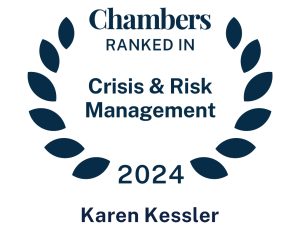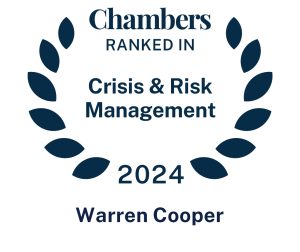Businessman extraordinaire Warren Buffet famously said, “It takes 20 years to build a reputation and five minutes to ruin it. If you think about that, you’ll do things differently.” Truer words have never been spoken in the world of public relations. Reputational threats and crises come in all shapes and forms, and they often hit at the most unexpected and inconvenient times. Addressing a crisis takes skill. Knowing what to do – and what not to do – in those first moments and the days immediately afterward is critical to preserving the hard-earned reputation of any individual or organization.
Top Mistakes Organizations & Leaders Make When Addressing a Crisis
Some of the most common, yet avoidable, mistakes organizations and leaders make during such stressful times include:
1. Not Recognizing the Signs
Often, there are “red flags” leading up to a crisis. Ignoring or dismissing these warnings often reveals itself as a missed opportunity later.
2. Not Being Prepared
Have a crisis communications plan at the ready. Developing a thoughtful strategy and putting proper protocols in place in advance will help you to successfully handle the first critical moments of an actual or potential crisis. Also, have legal and crisis communications consultants lined up ahead of time. Their contact information should already be plugged into your cell phone.
3. Not Prioritizing Internal Messaging
Those closest to the organization typically are your best supporters and advocates. Employees, Board members, and donors, for instance, need to hear from you first to be assured that they are getting accurate, up-to-date information from a reliable source. Provide updates, as appropriate.
4. Not Considering All External Stakeholders
Take time to identify all external audiences you should communicate with, such as community members, vendors, regulatory agencies, elected officials, and media. Make a list in advance and come up with a plan for outreach.
5. Not Being Appropriately Cautious
Avoid saying too much too soon. Take time to gather facts, consult with appropriate parties, and consider the long-term effects of your words and actions.
6. Not Owning a Mistake
Take the blinders off. If you know that a misstep has occurred, be accountable. Apologize, if appropriate.
7. Not Being Honest
To survive reputational fallout, honesty truly is the best policy. Be as transparent and forthright about what occurred as possible as you develop an effective response strategy.
8. Not Being Patient
While you may be eager to put the matter behind you and quickly move on, you may not resolve the issue at hand in a day, a week, or a month. It may take a year or longer to rebuild trust, which requires a tremendous amount of patience. While there is no “one size fits all” approach to addressing a personal or professional crisis, these are some tried-and-true tactics that will help any individual or organization avoid mistakes and make it through a challenging time with their reputation intact. Kessler PR Group is a leading public relations firm specializing in crisis communications, reputation management, litigation support and media relations. To learn more, please visit https://kesslerpr.com, call (888) 825-0892, or email info@kesslerpr.com.










